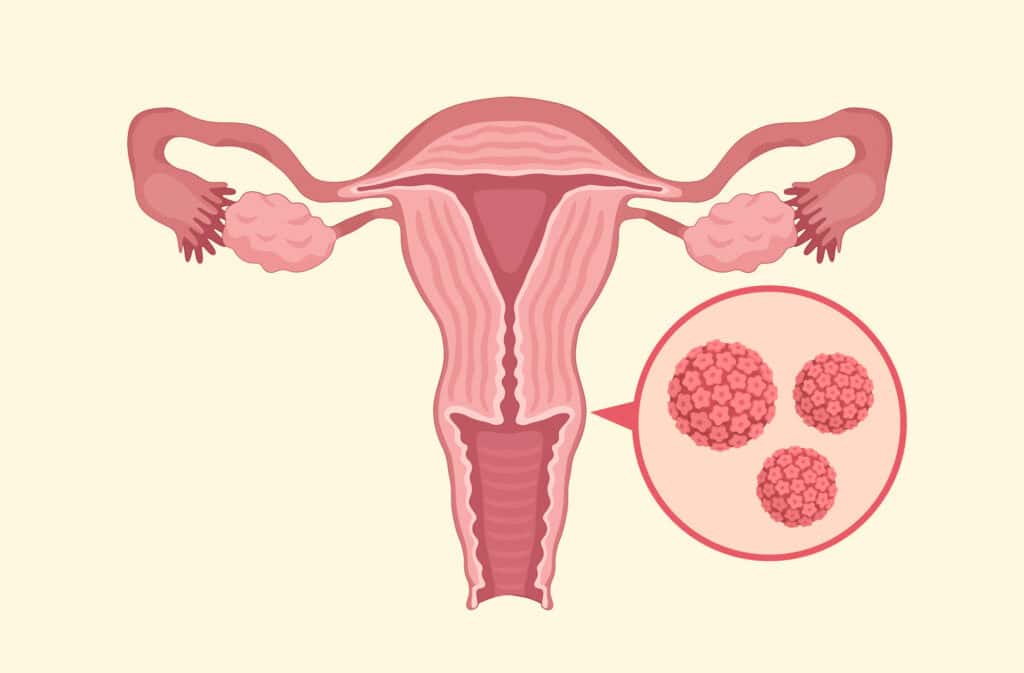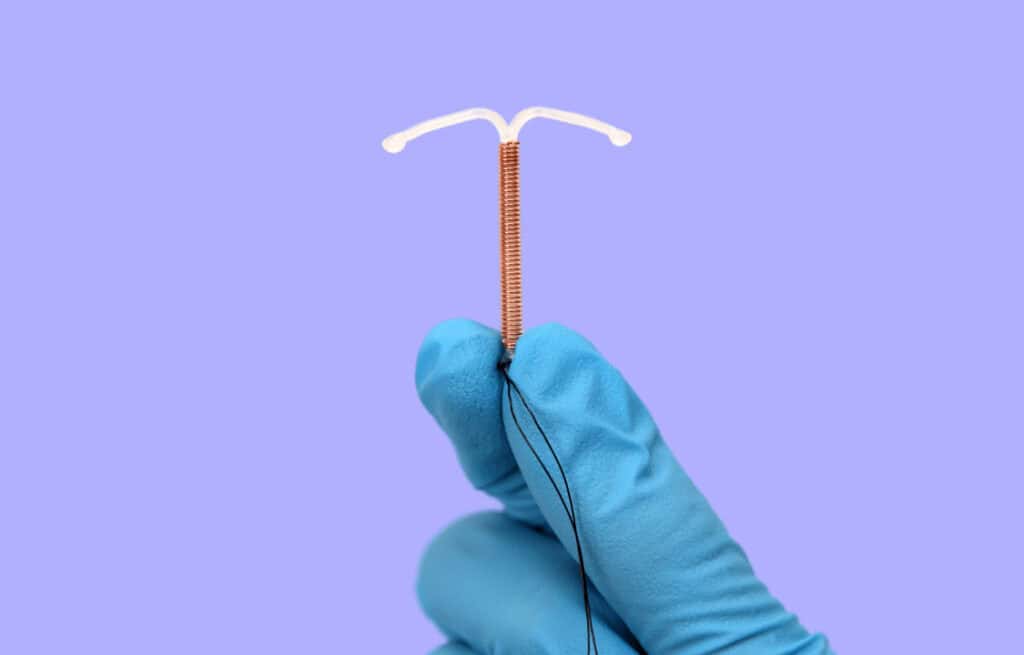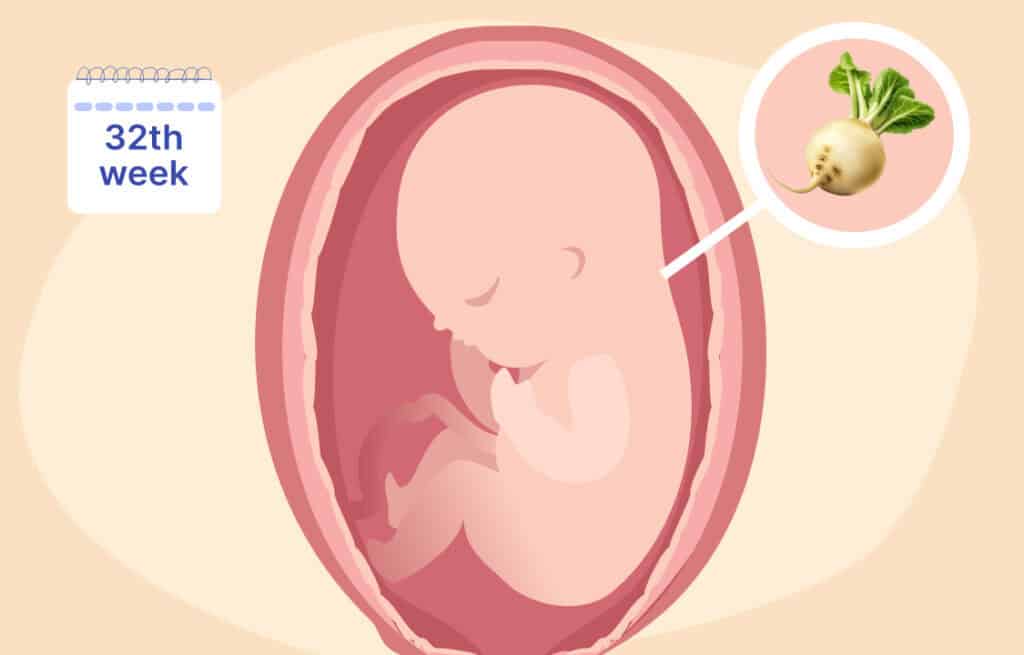Femia > Health Library > Getting Pregnant > Challenges > Can HPV cause infertility: Understanding the impact on fertility and pregnancy
Can HPV cause infertility: Understanding the impact on fertility and pregnancy

- Updated Feb 10, 2025
- Published
CRAFTED BY HUMAN
Crafted by human At Femia, we provide accurate and up-to-date information at every stage of your journey, from trying to conceive, pregnancy and postnatal support. All content is created by a real person based on in-depth research and own professional experience. Femia ensures that you will receive expert advice, strict accuracy and a personalized approach from our authors/medical experts. Learn more about our editorial policy.
FACT CHECKED
Fact checked At Femia Health, we maintain the highest standards of editorial excellence in delivering content focused on helping you conceive, guiding you through pregnancy, and supporting you postpartum. Explore our content review principles to learn how we ensure the accuracy and quality of our health and lifestyle tips for every stage of your journey.
Human papillomavirus (HPV) doesn’t directly affect fertility or cause infertility. However, if HPV progresses or persists without treatment, it may lead to other conditions—like cervical cancer in females or impacted sperm motility in males—which may cause problems in conceiving.
HPV doesn’t prevent couples from getting pregnant, but the high-risk strains of HPV may carry a risk of pregnancy complications, like preterm birth and low birth weight. However, most women with HPV have normal pregnancies and healthy babies.
Can HPV cause infertility? To find out, let’s start with the basics. HPV is a widespread infection that causes growths in the skin. Affecting 80% of sexually-active women and 90% of men across all socioeconomic and geographic subgroups, HPV raises fertility concerns for many couples.
HPV does not affect fertility directly, but it can cause other reproductive conditions that hinder conception. Let’s discuss the impact of HPV on fertility in detail.
What is HPV and how does it affect fertility?
Human Papillomavirus (HPV) refers to a group of more than 200 related viruses within the papillomavirus family that can infect both skin and mucous membranes. HPV affects not only the skin but also the mucous membranes in various areas of the body, including the genitals, oropharynx, anus, and upper respiratory tract. It is typically transmitted through skin-to-skin contact or unprotected sexual activity, such as vaginal, anal, and oral sex. While HPV infections may be asymptomatic, certain types can lead to health complications that may impact fertility and pregnancy outcomes.
The virus commonly spreads through unprotected sexual activity or skin-to-skin contact. There are around 200 types of HPV viruses, and the high-risk types can lead to cervical cancers, while low-risk HPV often does not cause any problems.
It is estimated that HPV causes around 70,000 cancer cases annually in men and 620,000 cases in women.
The majority of HPV strains are harmless and do not directly affect fertility, but it can affect the reproductive system. The high-risk type can indirectly affect your fertility by causing other conditions, like cell changes in the cervix or cervical cancer, that may damage reproductive organs, affecting your ability to conceive.
👉Find out more: How do I know if I am fertile enough to get pregnant? Key signs and tips
Can HPV cause infertility in females?
HPV doesn’t cause infertility directly in females but it affects the reproductive system, which can cause problems conceiving. Persistent and high-risk HPV infections can cause certain reproductive disorders, like cervical cancer and cervical intraepithelial neoplasia, which can gradually lead to infertility.
Human Papillomavirus can cause inflammation and abnormal cellular changes in the cervix, which may lead to dysplasia or, in some cases, progress to cervical cancer. Persistent HPV infections have also been associated with reproductive issues, potentially affecting pregnancy outcomes and increasing the risk of preterm births and miscarriage. However, cervical narrowing (stenosis) is not a typical outcome of HPV infection.
Some treatment options for HPV may also hinder your ability to conceive or increase the risk of miscarriage or early birth. These include:
1. Cone biopsy
Cone biopsy is a procedure that removes tissue from your cervix for biopsy. It is commonly done to evaluate the condition of your cervix.
The procedure is also used to treat cervical damage when the cervix has been infected with HPV by surgically removing the abnormal cervical tissue.
As the procedure may weaken or cause changes and scarring in the cervix, studies show that cone biopsy carries a slight risk of infertility, premature labor, and miscarriage before the 37th week.
2. Hysterectomy
Hysterectomy is a surgical procedure that removes the entire cervix, along with the rest of the reproductive system. It is done when HPV infection persists in the cervix and increases the risk of cervical cancer. Removing the entire cervix eliminates the female’s child-bearing ability.
3. Loop electrosurgical excision
Loop electrosurgical excision (LEEP) is a safe and effective procedure that uses a wire loop to remove abnormal fiber from the cervix that are at risk of becoming cancerous.
The procedure rarely affects fertility, and there is a high potential for pregnancy after LEEP. However, some patients may experience complications during pregnancy after the procedure due to changes in the cervix.
4. Cryotherapy
Cryotherapy, a procedure that uses liquid nitrogen to freeze and destroy abnormal cervical cells, was once commonly used to treat cervical abnormalities. However, it is now considered an outdated method, especially for high-grade dysplasia, and is no longer recommended as a primary treatment for these types of lesions.
Today, more advanced and precise methods are preferred, including:
- Loop Electrosurgical Excision Procedure (LEEP), which enables targeted removal of abnormal tissue.
- Cervical conization (using either laser or surgical techniques), which not only removes the affected area but also provides tissue for further histological analysis.
Does HPV affect fertility in males and females?
HPV doesn’t have any severe impact on fertility in either males and females. The infection is typically asymptomatic and resolves on its own within 12–24 months. Moreover, successful pregnancies have been reported in couples with HPV. However, high-risk, severe, or persistent HPV infections can affect both male and female fertility.
In females, persistent HPV affects the cervix and causes cervical changes. In males, high-risk or severe HPV can affect the cellular components of seminal fluid and alter sperm parameters, including sperm motility, count, concentration, and morphology, causing fertility problems.
Prophylactic HPV vaccination is one of the common strategies to prevent HPV infection and improve male fertility.
Can I get pregnant with HPV?
So, can you have kids with HPV? Yes, you can get pregnant with HPV, but you will need to monitor your condition closely and ensure regular health checkups, especially if you are infected with a high-risk strain of HPV.
Regular health checkups are crucial in pregnant women with HPV. They help rule out and treat any potential complication at an early stage to prevent future HPV-related adverse outcomes for the mother and the baby.
Some measures to prevent the transmission of HPV from mother to baby, particularly in sexually active couples, include:
- Ensuring regular checkups for cervical abnormalities and cervical cancer screening (Pap smear).
- Discussing the risks of vaginal delivery with your doctor if your HPV has caused genital warts, cervical lesions, or cervical cancer.
- Practicing hygiene and safe sex to prevent reinfection risk.
- Ensuring regular checkups for your newborn after delivery and monitoring for signs of HPV-related conditions in the baby and couple.
- Taking breastfeeding precautions, like using a nipple shield to avoid skin-to-skin contact.
- Completing your HPV vaccination before starting sexual activity.
👉Find out more: Ozempic babies: What you need to know about Ozempic and pregnancy
My husband has HPV, and we want to have a baby
Although HPV in men can reduce sperm motility and may increase the time it takes to conceive, it doesn’t prevent pregnancy.
So, if your husband has HPV, you can plan and try for pregnancy, but it is crucial to consult your healthcare professional and practice hygiene and precautions to minimize the transmission risk.
Does HPV affect pregnancy?
Overall, HPV doesn’t prevent you from getting pregnant, and most women with HPV have normal pregnancies with healthy babies. However, in the case of high-risk and severe HPV, the infection may cause complications and adverse outcomes in pregnancy, like placental abnormalities, preterm birth, reduced fetal growth, or spontaneous miscarriage.
Questions from the Femia community
Does treating HPV affect my ability to get pregnant?
Yes, some HPV treatments that target the cervix in females can affect pregnancy outcomes or fertility. So, it's essential to talk to your healthcare provider about your pregnancy plans and options for HPV treatments before you undergo any procedure.
Can I undergo fertility treatments if I have HPV?
Yes, it's generally safe to go for fertility treatments if you have an HPV infection. Still, it is ideal to closely monitor your reproductive health with your healthcare provider throughout your treatment process.
The bottom line
HPV doesn’t directly cause infertility, and many couples with HPV have successfully conceived and delivered healthy babies. Most types of HPV are non-harmful and go away on their own. However, more severe, persistent, and high-risk strains of HPV can become cancerous and affect your fertility by damaging the reproductive organs, like the cervix, or by affecting sperm parameters. Hence, it is crucial to ensure regular medical follow-ups if you have HPV to manage and prevent HPV-related complications before and during pregnancy.
References
- Pereira, Nigel, et al. “Human Papillomavirus Infection, Infertility, and Assisted Reproductive Outcomes.” Journal of Pathogens, vol. 2015, Jan. 2015, pp. 1–8. https://doi.org/10.1155/2015/578423.
- Website, NHS. “Human Papillomavirus (HPV).” nhs.uk, 18 Sept. 2024, www.nhs.uk/conditions/human-papilloma-virus-hpv.
- “Chapter 11: Human Papillomavirus.” Epidemiology and Prevention of Vaccine-Preventable Diseases, 23 Apr. 2024, www.cdc.gov/pinkbook/hcp/table-of-contents/chapter-11-human-papillomavirus.html#:~:text=More%20than%20200%20distinct%20types,epidemiologic%20association%20with%20cervical%20cancer.
- World Health Organization: WHO. Human Papillomavirus and Cancer. 5 Mar. 2024, www.who.int/news-room/fact-sheets/detail/human-papilloma-virus-and-cancer.
- Wang, Li, et al. “HPV And Vaginal Microecological Disorders in Infertile Women: A Cross-sectional Study in the Chinese Population.” Virology Journal, vol. 19, no. 1, Aug. 2022, https://doi.org/10.1186/s12985-022-01869-0.
- “Cervical Biopsy.” Johns Hopkins Medicine, 25 July 2024, www.hopkinsmedicine.org/health/treatment-tests-and-therapies/cervical-biopsy.
- Andy. “Cervical Abnormalities (CIN3/CGIN): Fertility and Pregnancy.” Healthtalk, 23 Aug. 2023, healthtalk.org/experiences/cervical-abnormalities-cin3-and-cgin/fertility-and-pregnancy.
- Sucato, Arianna, et al. “Human Papillomavirus and Male Infertility: What Do We Know?” International Journal of Molecular Sciences, vol. 24, no. 24, Dec. 2023, p. 17562. https://doi.org/10.3390/ijms242417562.

Many women drink raspberry leaf tea during pregnancy to prepare for labor. Find out how raspberry leaf tea can benefit you and when to start raspberry leaf tea.

All about early signs of pregnancy after IUD removal (hormonal or copper IUDs). Discover how long to wait, what symptoms to look for, and tips for recognizing pregnancy early.

At 32 weeks pregnant, your baby is growing and nearing full-term readiness. Explore symptoms, labor prep, and preemie survival rates.

